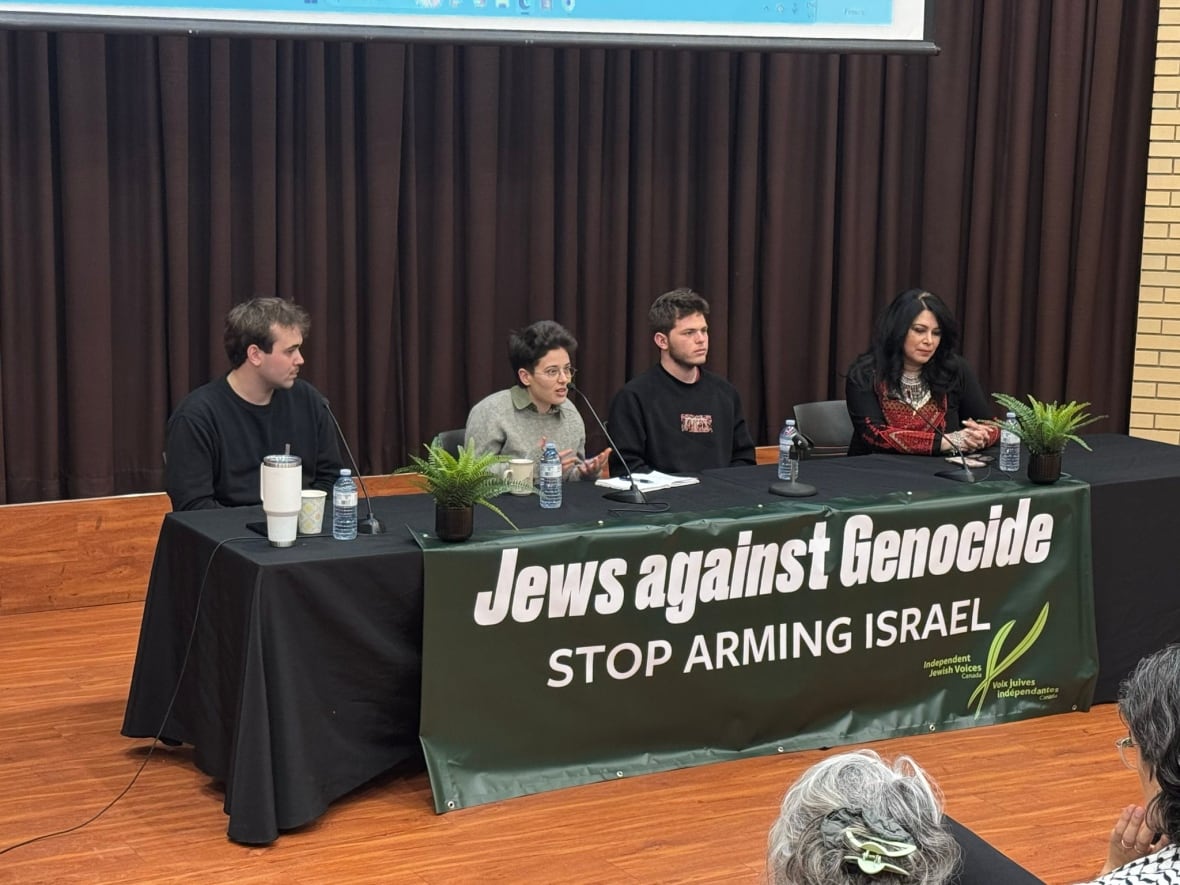
Similar to the way American conscientious objectors were treated in World War I
On December 26, 2023, Tal Mitnick, then 18, entered an Israel Defense Forces (IDF) enlistment center in Tel Aviv and publicly announced that he would refuse military service.
Subsequently, he was forced to serve 185 days in a military prison and was released in July 2024.
Mitnick recently told the Canadian Broadcasting Corporation (CBC) that “I had a choice: to be part of this force currently genociding my neighbors, that is killing people’s loved ones, or I had a choice to refuse.” Honorably, he chose to refuse.
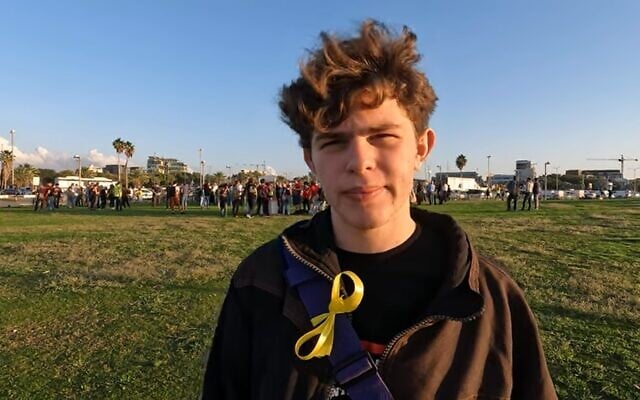
At the time of his arrest, Mitnick called the Israeli response to October 7 “a revenge campaign” against not just Hamas but all Palestinians, marked by “indiscriminate bombings of residential neighborhoods and refugee camps in Gaza, full military and political support for settler violence in the West Bank and political persecution on an unprecedented scale inside Israel.”[1]
Mitnick is a leftist who was inspired by his father, a journalist who spent a lot of time in the Israeli-occupied West Bank telling stories from the Palestinian side.
He was among 200 high school teenagers who signed onto a letter saying that they would refuse to be conscripted in protest of the government’s judicial overhaul that threatened what was left of the country’s democracy and Israel’s decades-long control over the West Bank.
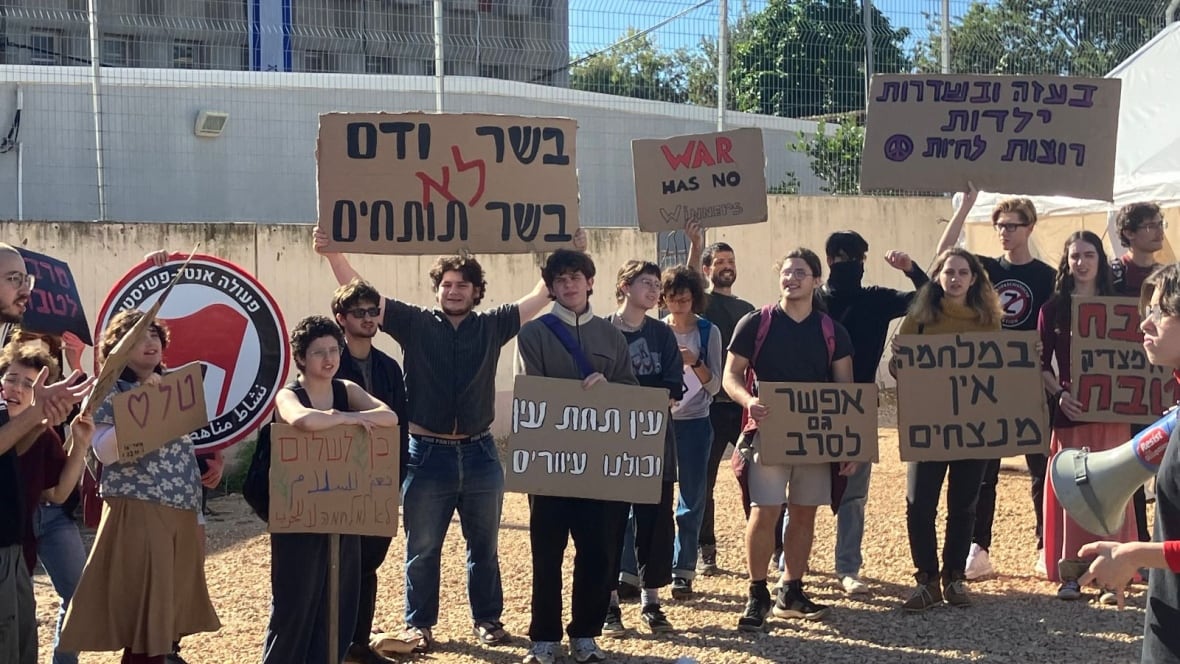
In March, Mitnick embarked on a cross-Canada tour with fellow refusenik, Einat Gerlitz, 21, who refused Israeli military service in 2022 and spent 87 days in a military prison.

As part of their speaking tour, Mitnick and Gerlitz were featured in a March 16 webinar hosted by the World Beyond War peace group in collaboration with the Refuser Solidarity Network.
Both Mitnick and Gerlitz urged people in attendance to lobby their governments to halt weapons supplies to Israel that have enabled the genocide in Gaza, to promote campaigns to divest from Israeli products, and to issue an arms embargo on the Israeli state.
When asked about prison conditions when they were incarcerated, Gerlitz said that the experience was tough but nothing like what Palestinians experience in Israeli prisons where they are subjected to completely inhuman conditions and are routinely tortured.
Mitnick said that, while he was in prison, his approach was to try to build personal relationships with other inmates so that, with time, they might consider some of his political viewpoints.
A number of refuseniks had been sent to solitary confinement for voicing political opinions that were critical of the Israeli government and considered to be leftist.
Mitnick said that there was a general climate of hatred for Palestinians and leftists in Israel that worsened after October 7.
Before October 7, he said, many Israelis were open to the idea of peace but, since October 7, a large majority have come to “favor destruction and killing.”
The webinar speakers were introduced by Ron Van Norstrand, a Vietnam-era veteran and member of the Veterans for Peace organization living in Syracuse, New York.
Van Norstrand said that, if people could remove the blinders of “profit and power,” they could see the wisdom of Native American groups who formed a peaceful confederacy in the 18th century, and of Israeli refuseniks who have followed in their tradition.
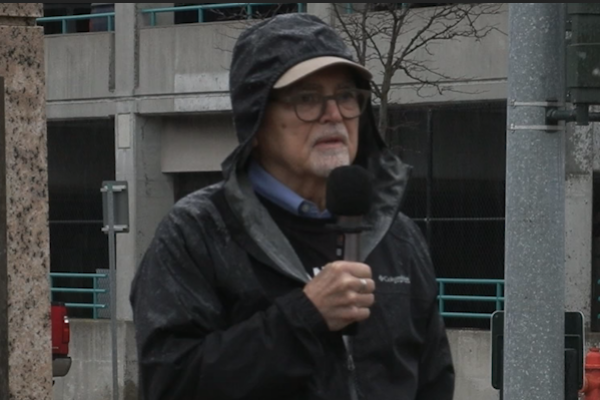
The first speaker, Atalya Ben-Abba, was the social media manager for the Refuser Solidarity Network who spent 110 days in an Israeli military prison for refusing service in the IDF in 2017.
She said that she refused to join the military out of protest of the Israeli occupation of the West Bank and Gaza, which she did not want to participate in.
This was not an easy position to take because Israel is a very militarized society, she said, whose culture venerates military service.
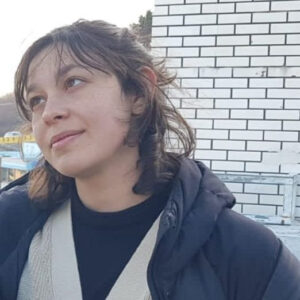
Ben-Abba grew up in Jerusalem, not far from where Palestinians live, and was exposed to the hardships and humiliations they endure on a daily basis.
Atalya said that her experience was rather unique as most Israeli youth were “never given the opportunity to interact with Palestinians” and, hence, do not understand “how they have been oppressed and that their land was stolen.”
According to Atalya, Israeli schools teach kids a false historical narrative, which claims that Israel was an empty land before Jewish settlement and that it was established as a safe refuge for Jewish people.
The media contribute to people’s ignorance by failing to spotlight the Palestinians’ experience, while often promoting outright hatred toward them.
Since October 7, Ben-Abba said, there has been a “gross environment” where genocidal language toward the Palestinians is openly adopted and people are supporting war crimes and calls for the extermination of the Palestinian people.
In such an environment, speaking out is exceedingly difficult. Nevertheless, she and other refuseniks believe that it is especially important to show people that there are different ways of thinking and to amplify voices for peace.
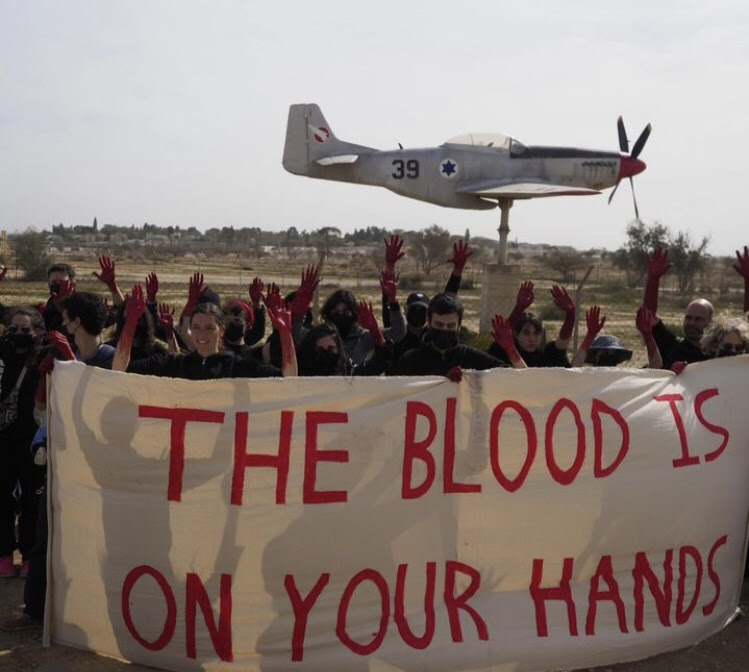
The next speaker after Ben-Abba was Mattan Helman, executive director of the Refuser Solidarity Network, who gave a history of Israeli conscientious objectors.
Helman said that the first conscientious objectors came out during the 1948 Israeli independence war when they refused to participate in the violent displacement of Palestinians in the Nakba.
The next wave of objectors came out after the 1967 Six-Day War when the Israeli occupation of the West Bank and Gaza was formalized.
The largest number of objectors to date came out during the 1980s Lebanon War, which was referred to by some analysts as Israel’s Vietnam. Many reserve soldiers refused service and formed a community that hosted a Woodstock-type concert and other peace-oriented events.
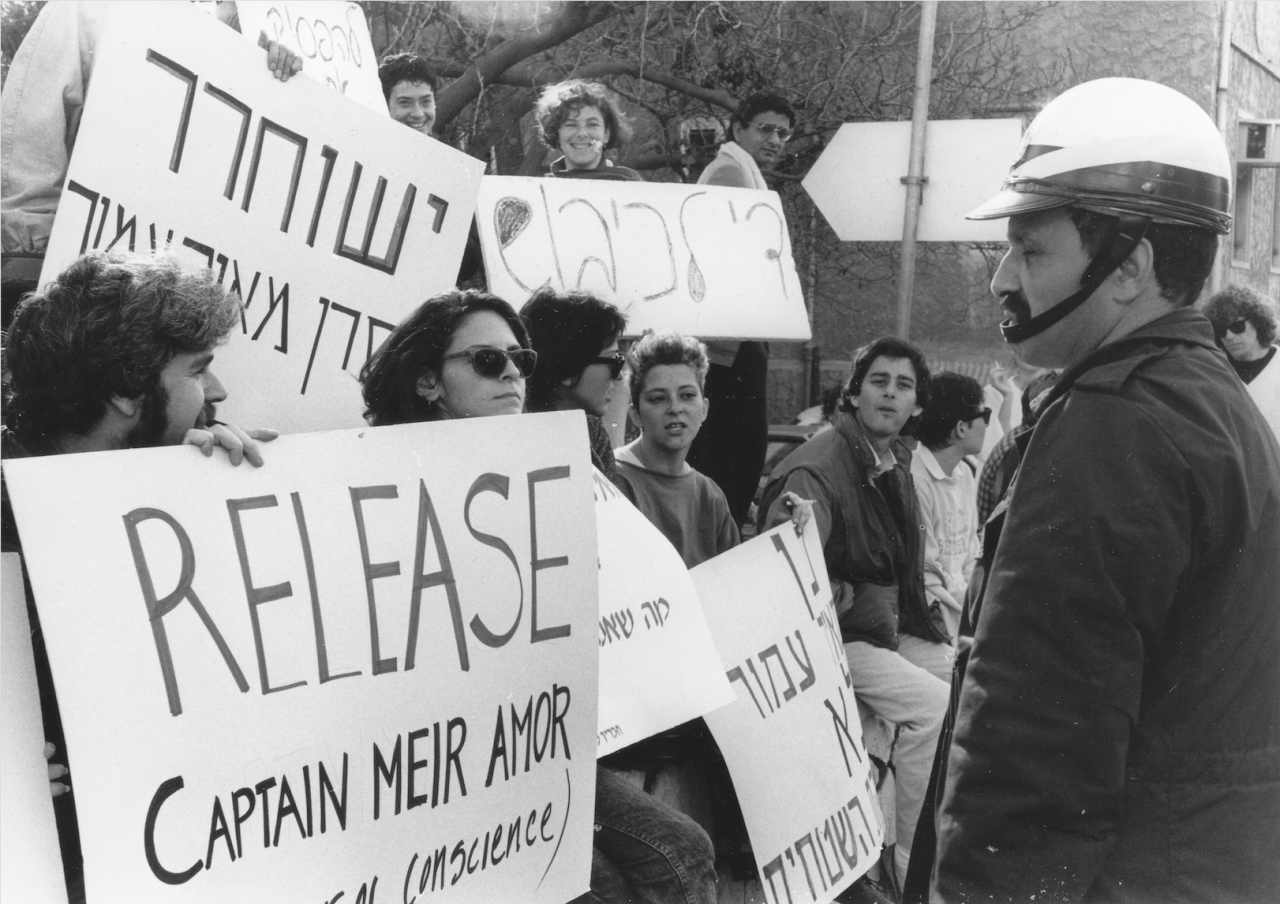
In May 2000, the Israeli government was forced to end IDF’s 18-year occupation of southern Lebanon because of manpower concerns, which Helman said exemplifies the “ability of refusers to affect governmental policy.”
The Israeli government felt similarly constrained, Helman says, during its brutal suppression of the second Palestinian Intifada when the number of refusers was relatively high.
Some Jewish settlements were removed from the occupied West Bank at this time and Israel had to pull back from occupied Palestinian lands.
Helman said that he only learned about the oppression of the Palestinians at the age of 15, even though he grew up only 20 kilometers from the West Bank.
At the time, he was becoming more critical of Israeli society, in part because he felt somewhat like an outsider since he was not Jewish (his father was Jewish, but not his mother).
Helman said he grew up on a kibbutz, whose members engrained in him humanistic socialist values.
Paradoxically, the kibbutz was strongly Zionist and militaristic, he said, because of the belief that kibbutzniks had helped build the State of Israel.
When Helman joined a youth group, he was expelled because of his left-wing outlook and critical attitudes toward the Israeli military.
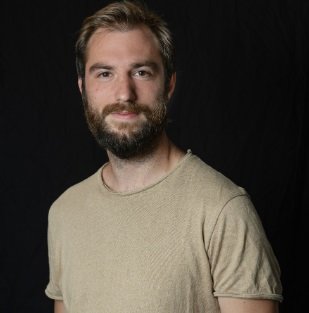
Helman said that many people who expressed hatred toward leftists when he was imprisoned and in other contexts did not understand what leftists actually believed.
For example, people thought leftists wanted all Jews to be killed, which obviously is not true.
When Helman explained to one person that he was against the killing and oppression of Palestinians but did not want all Jews to be killed, the person responded by saying, “oh, so you are then in the center. The right wants all Palestinians killed, and left all Jews.”
In reality, only the first part of what he was saying was true (the right indeed wants to kill all Palestinians), but not the second.
American Comparisons
The Israeli refuseniks are brave people whose principled position has come at a heavy personal price.
Their harsh treatment compares with conscientious objectors in the U.S. during World War I, World War II and the Vietnam War, during which more than 3,000 men were jailed for draft resistance.
In 2017, the National World War I Museum in Kansas City unveiled a plaque honoring two conscientious objectors, Joseph and Michael Hofer, who died in late 1918 in Ft. Leavenworth military prison after having undergone weeks of torture in a dungeon at the notorious Alcatraz prison in San Francisco Bay.
Part of a Christian religious group (Hutterites) that believes in pacifism, the Hofer brothers were two of 504 conscientious objectors to the Great War in the U.S. who faced imprisonment and torture.
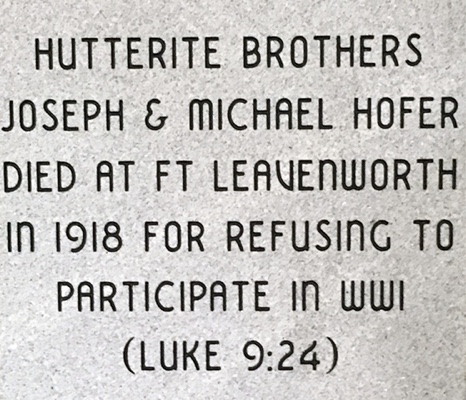
In World War II, around 6,600 American men were imprisoned for refusing to register for the draft or rejecting alternative service.
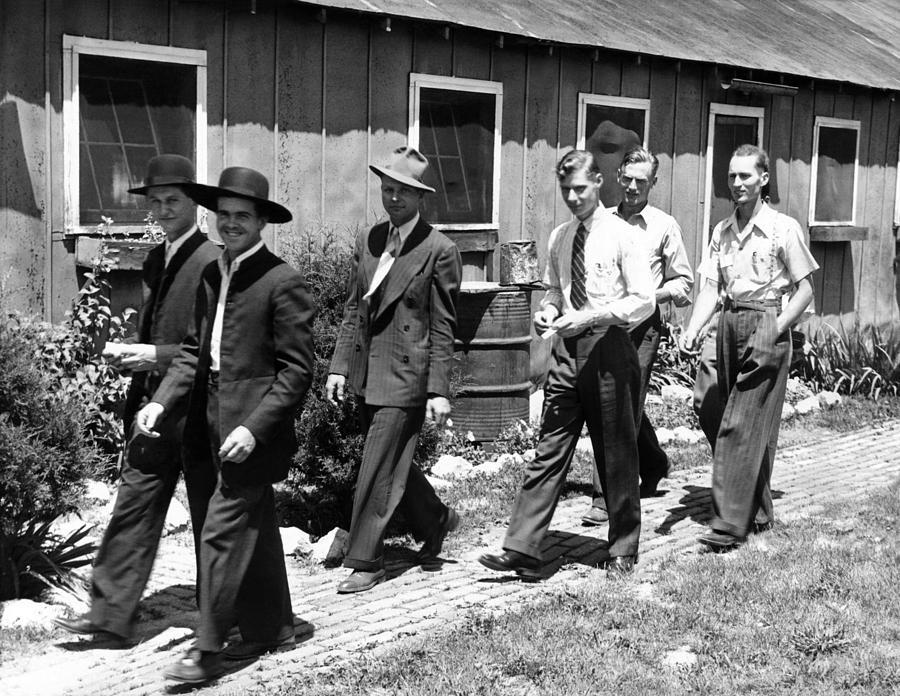
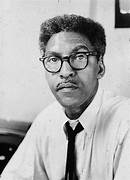
Psychological studies found that these men—like their modern Israeli counterparts—tended to be idealists with high levels of intelligence and educational achievement who were more interested in artistic and social service occupations than careers in business.[2]
One World War II conscientious objector, Bayard Rustin, the future civil rights leader, wrote: “By some prison officials we were considered the worst scum of the earth because we had refused to fight for our country.”
The same attitudes prevail in Israel today, though history will surely look kindly on Israel’s conscientious objectors—and unkindly on the youth of their age who did not follow their lead.

In a statement published on social media at the time of his act of refusal, Mitnick had written that, “even with all the violence in the world, we could not erase the Palestinian people or their connection to this land, just as the Jewish people or our connection to that same land cannot be erased. Violence cannot solve the situation—neither by Hamas nor by Israel. There is no military solution to a political problem. Therefore, I refuse to enlist in an army that believes that the real problem can be ignored, under a government that only continues the bereavement and pain.” ↑
Lawrence S. Wittner, Rebels Against War: The American Peace Movement, 1933-1983 (Philadelphia: Temple University Press, 1984), 48. See also Mulford Q. Sibley and Philip E. Jacob, Conscription of Conscience: The American State and the Conscientious Objector, 1940-1947 (Ithaca, NY: Cornell University Press, 1952); Steve McQuiddy, Here on the Edge (Corvallis: Oregon State University Press, 2013). ↑
CovertAction Magazine is made possible by subscriptions, orders and donations from readers like you.
Blow the Whistle on U.S. Imperialism
Click the whistle and donate
When you donate to CovertAction Magazine, you are supporting investigative journalism. Your contributions go directly to supporting the development, production, editing, and dissemination of the Magazine.
CovertAction Magazine does not receive corporate or government sponsorship. Yet, we hold a steadfast commitment to providing compensation for writers, editorial and technical support. Your support helps facilitate this compensation as well as increase the caliber of this work.
Please make a donation by clicking on the donate logo above and enter the amount and your credit or debit card information.
CovertAction Institute, Inc. (CAI) is a 501(c)(3) non-profit organization and your gift is tax-deductible for federal income purposes. CAI’s tax-exempt ID number is 87-2461683.
We sincerely thank you for your support.
Disclaimer: The contents of this article are the sole responsibility of the author(s). CovertAction Institute, Inc. (CAI), including its Board of Directors (BD), Editorial Board (EB), Advisory Board (AB), staff, volunteers and its projects (including CovertAction Magazine) are not responsible for any inaccurate or incorrect statement in this article. This article also does not necessarily represent the views the BD, the EB, the AB, staff, volunteers, or any members of its projects.
Differing viewpoints: CAM publishes articles with differing viewpoints in an effort to nurture vibrant debate and thoughtful critical analysis. Feel free to comment on the articles in the comment section and/or send your letters to the Editors, which we will publish in the Letters column.
Copyrighted Material: This web site may contain copyrighted material the use of which has not always been specifically authorized by the copyright owner. As a not-for-profit charitable organization incorporated in the State of New York, we are making such material available in an effort to advance the understanding of humanity’s problems and hopefully to help find solutions for those problems. We believe this constitutes a ‘fair use’ of any such copyrighted material as provided for in section 107 of the US Copyright Law. You can read more about ‘fair use’ and US Copyright Law at the Legal Information Institute of Cornell Law School.
Republishing: CovertAction Magazine (CAM) grants permission to cross-post CAM articles on not-for-profit community internet sites as long as the source is acknowledged together with a hyperlink to the original CovertAction Magazine article. Also, kindly let us know at info@CovertActionMagazine.com. For publication of CAM articles in print or other forms including commercial internet sites, contact: info@CovertActionMagazine.com.
By using this site, you agree to these terms above.
About the Author

Jeremy Kuzmarov holds a Ph.D. in American history from Brandeis University and has taught at numerous colleges across the United States. He is regularly sought out as an expert on U.S. history and politics for radio and TV programs and co-hosts a radio show on New York Public Radio and on Progressive Radio News Network called “Uncontrolled Opposition.”
He is Managing Editor of CovertAction Magazine and is the author of six books on U.S. foreign policy, including Obama’s Unending Wars (Clarity Press, 2019), The Russians Are Coming, Again, with John Marciano (Monthly Review Press, 2018), Warmonger. How Clinton’s Malign Foreign Policy Launched the U.S. Trajectory From Bush II to Biden (Clarity Press, 2023); and with Dan Kovalik, Syria: Anatomy of Regime Change (Baraka Books, 2025).
Besides these books, Kuzmarov has published hundreds of articles and contributed to numerous edited volumes, including one in the prestigious Oxford History of Counterinsurgency .
He can be reached at jkuzmarov2@gmail.com and found on substack here.



Many Druze were tortured in prison by the Assad regime
https://www.aa.com.tr/en/middle-east/druze-in-syria-hold-memorial-for-relatives-killed-at-infamous-sednaya-prison/3431215
Is this the reason Ghassan Alian wants to annex the Syrian Druze to Israel?
The Druze community in Syria seems to be much happier since the fall of the Assad Regime.
https://www.youtube.com/watch?v=XR9SWHb9GG4
Good joke
https://strategic-culture.su/news/2025/05/04/first-they-kill-alawites-and-christians-now-druze-who-next-syria/
Why not also write an article about Russia which has similar laws:
in Russia, male citizens aged 18 to 30 are subject to mandatory military service. This conscription lasts for a year and is a legal obligation, with exceptions for specific circumstances. Avoiding conscription is a felony under Russian law.
Here’s a more detailed explanation:
Conscription is mandatory: All eligible male citizens are required to serve in the military for one year.
Age range: The conscription applies to men between the ages of 18 and 30.
Exceptions: There are specific exceptions to conscription, such as for those with certain health conditions, those pursuing higher education, or those who have been deemed unfit for military service.
Avoiding conscription is illegal: Evading military service is a crime punishable by imprisonment.
Zelensky accused Putin of forcibly mobilizing Ukrainian citizens into the Russian army. I found it suspicious that Ghassan Alian wanted to officially annex parts of Syria at any cost. Zelensky sent the Hague Tribunal the fact that Russia is forcibly mobilizing Ukrainian citizens into the Russian army, but nothing about the fact that Zelensky is also forcibly mobilizing foreigners registered in Ukraine and Ukraine citizens too.
Although he is unhappy with Israel’s reaction to the October 7 massacre, he still condemned the attack by Hamas which he described as an atrocious slaughter as described in the CBC article below: He is against Israel’s approach, but is by no means a supporter of Hamas which is a terrorist organization.
Eighteen-year-old Israeli Tal Mitnick explains his decision to refuse mandatory military service in this video posted by the organization Mesarvot. ‘The criminal attack on Gaza won’t solve the atrocious slaughter that Hamas executed,’ Mitnick says in the video. He was later jailed for his decision.
That’s why Israeli Druze Ghassan Alian wants to recruit Syrian Druze into the IDF. If they really annex the Syrian Druze to Israel, he can also mobilize them into the IDF. Then will it be IDDF not IDF.